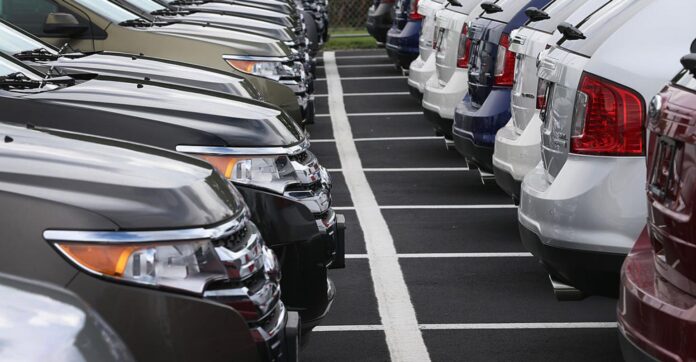ISLAMABAD: Prices of vehicles are set go further up due to proposed duties and taxes on the auto sector in the mini budget presented in the National Assembly (NA) on Thursday.
According to the details, the government proposed to increase Federal Excise Duty (FED), advance tax, transfer tax and other duties through the finance supplementary bill, making locally manufactured cars much more expensive.
Earlier, the government had reduced taxes, decreasing FED on vehicles across the board as well as sales tax for cars below 1000cc cars, which resulted in a reduction in overall prices and an increase in sales.
It may be mentioned here that the tax on the electric vehicle (EV) parts would not be increased although EVs up to 1800cc would be taxed at the rate of 12.5 per cent instead of the current 5pc. Similarly, the bill also proposes to tax hybrid electric vehicles above 1800cc at 17pc.
Locally manufactured cars above 850cc will again be subject to 17pc GST while the tax rate for electric tractors, rickshaws, three wheelers, and electric motorcycles would stay at 1pc.
Another major factor which may further increase car prices further is the increase in transfer tax imposed on the registration of a vehicle. According to the bill, the tax on vehicles over 1000cc has been increased to Rs100,000 from the existing Rs50,000, the tax on vehicles ranging between 1001cc to 2000cc would be subject to advance tax of Rs200,000 compared to the existing Rs100,000 tax while those of 2001cc and above will pay Rs200,000 to Rs400,000.
This measure, according to an official of the Ministry of Industries and Production, has been taken to discourage ‘on money’ culture. However, sources believe that the same is imposed on the registration of vehicles by the first owner.
Industry sources believe that while EVs and locally manufactured cars will cost more as the government has increased GST, registration fee and FED, imported vehicles that would see the highest price jump.
According to H.M. Shehzda of All Pakistan Motor Dealers Associations (APMDA), the government and its concerned ministries, by increasing the taxes, have only burdened the end customers of the vehicles. “The taxes announced in the mini budget will not affect car producers as they would simply pass on the same to buyers,” he said.
Another Auto Trader, Adeel, said that the government has dropped a big bomb on the auto sector as the common man can not afford a small car of over Rs2 million. He said that sales would definitely take a hit.
Meanwhile, an official of the Engineering Development Board (EDB) claimed that the board had suggested against increasing taxes as the auto industry has recently started expanding. However, the government decided not only to withdraw existing relaxations but also increase taxes manifold.
It may be recalled that the current year saw the launch of new car models in the country including Honda City, Changan Alswin, Proton Saga, X70, Hyundai Elantra, Sonata, KIA Sorenta, and Stonic.
Moreover, volumes of two-wheelers increased by 30pc year-on-year (YoY) to 1,707,348 units in the first 11 months of the calendar year 2021 (11MCY21) compared to 1,317,635 units during the same period last year. Motorcycle sales were led by Suzuki; up by 93pc to 29,192 units, Atlas Honda 42pc to 1,237,631 units, and Yamaha up by 27pc to 19,362 units.





The government proposes to increase the federal excise tax (FED), pretax, transfer tax and other taxes through the fiscal supplement bill, making domestically produced cars much more expensive. Just like he said ordinary people cannot buy a small car over Rs 2 million.
People still expect to get a tax break for them. That’s what everyone expected.